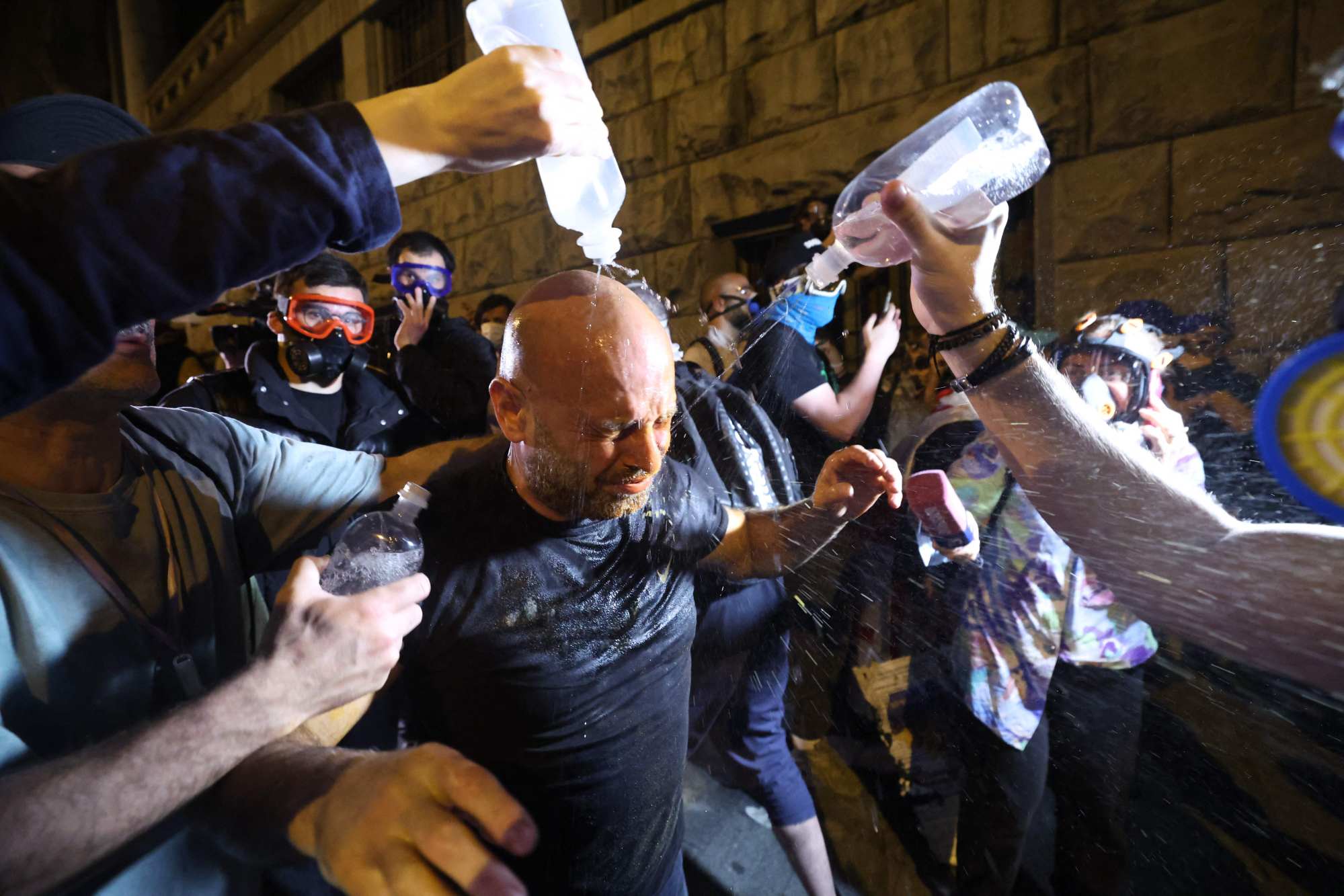Georgia’s parliament moved a step closer on Wednesday to passing a law that critics fear will stifle media freedom and endanger the country’s European Union membership bid, as police used water cannons, tear gas and pepper spray against the tens of thousands of protesters who thronged surrounding streets.
Dozens of people were arrested the night before, and mass rallies have continued daily in the capital, Tbilisi.
Protesters denounce the bill as “the Russian law” because neighbouring Russia uses similar legislation to stigmatise independent news media and organisations critical of the Kremlin.
The law would require media and noncommercial organisations to register as “pursuing the interests of a foreign power”, if they receive more than 20 per cent of funding from abroad.
The ruling Georgian Dream party withdrew a similar proposal last year after large crowds protested.
Eighty-three of Georgia’s 150 lawmakers approved the bill in its second reading, while 23 voted against it. A third and final vote in parliament is needed before it can be signed into law.
Georgian lawmaker Irakli Kobakhidze told reporters on Wednesday that he expected that final vote to happen in mid-May.
Russia-Georgia relations have been complicated and turbulent since the Soviet Union’s collapse in the early 1990s. The two countries fought a short war in 2008 that ended with Georgia losing control of two Russia-friendly separatist regions.
In the aftermath, Tbilisi severed diplomatic ties with Moscow, and the issue of the regions’ status remains a key irritant, even as relations have somewhat improved.
Georgia joined international resolutions condemning Russia’s full-scale invasion of Ukraine, but it also became a main destination for Russians fleeing military mobilisation and political crackdowns. Even Georgia’s ruling party has seen internal tensions over its neighbour.
The Interior Ministry said that 63 people were detained following Tuesday’s protest.
Georgian President Salome Zourabichvili, increasingly at odds with the governing party, has criticised the bill and vowed to veto it if it is passed by parliament.

But the governing party can overrule the veto and ask the parliamentary speaker to sign the bill into law.
At a media briefing Wednesday, Kobakhidze spoke openly of Georgian Dream’s intention to do so, and defended Tbilisi’s forceful response to the protests.
“There will be demonstrations today, during the third reading, during the overriding of the veto. (When the law passes), there will be a few days of discomfort. However, in the long term, we will insure the country against polarisation and radicalism for years,” Kobakhidze told reporters.
The United States said the legislation would put Georgia on a “precarious trajectory”.
“The statements and actions of the Georgian government are incompatible with the democratic values that underpin membership in the EU and Nato and thus jeopardise Georgia’s path to Euro-Atlantic integration,” US State Department Spokesman Matthew Miller said in a statement.
EU chief Charles Michel has said the bill “is not consistent with Georgia’s bid for EU membership” and that it “will bring Georgia further away from the EU and not closer”.
In December, the EU granted Georgia official candidate status but said Tbilisi would have to reform its judicial and electoral systems, reduce political polarisation, improve press freedom and curtail the power of oligarchs before membership talks are formally launched.
Georgia’s bid for membership of the EU and Nato is enshrined in its constitution and – according to opinion polls – supported by more than 80 per cent of the population.
Additional reporting by Agence France-Presse

